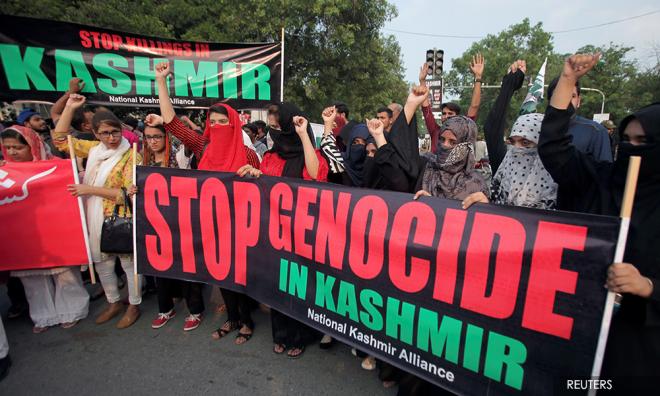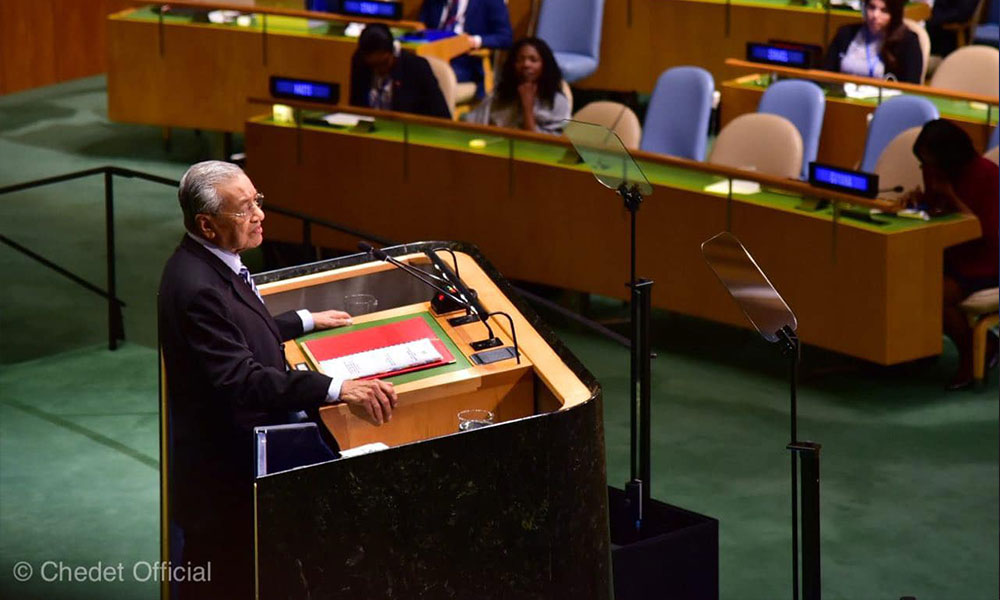
Bersatu chairperson Dr Mahathir Mohamad's coalition partners PKR and Amanah have come to the prime minister's defence over his statement on Kashmir which has caused anger in India with threats of a trade boycott.
PKR president Anwar Ibrahim said Mahathir's statement was representative of what some Malaysians think, but stressed that the fallout needs to be dealt with properly.
"They probably represented the sentiment of some in the country, but I think we need to resolve amicably because it is important for our economy," he told journalists at the Parliament lobby today when asked if the Port Dickson MP thought Mahathir was being too harsh.
Asked if Mahathir should apologise, Anwar noted that the Langkawi MP was not someone who changes positions.
"Mahathir is known to be very consistent in his views," he said.

Meanwhile, Terengganu Amanah chief Raja Kamarul Bahrin Shah Raja Ahmad (above) said Mahathir was speaking out as a statesman.
"I think there is nothing wrong for a statesman to defend the weak just as we have spoken up on Yemen which should not have been invaded by a major power," he told journalists at the Parliament lobby, adding that it was a "fair statement".
He added that Malaysia cannot act solely on business considerations.
"Business is not everything. We have a moral responsibility to uphold and defend the rights of smaller nations," he said.
Last week, Reuters reported that Indian refiners have stopped buying Malaysian palm oil in anticipation of curbs to be imposed by the Indian government, including duty hikes.
No official announcement has been made by New Delhi.
However, the Mumbai-based Solvent Extractors’ Association of India had called for a boycott of Malaysian palm oil over Mahathir's comment at the United Nations.
Mahathir, in a speech to the UN General Assembly last month, expressed concern over the situation in the Jammu and Kashmir region, and called for a peaceful resolution.

"Despite the UN resolution on Jammu and Kashmir, the country has been invaded and occupied. There may be reasons for this action, but it is still wrong.
"The problem must be solved by peaceful means. India should work with Pakistan to resolve this problem. Ignoring the UN would lead to other forms of disregard for the UN and the rule of law," he had said.
The UN has long called for military personnel in the disputed region to be kept to a minimum, but India in August stripped the special status of the Indian-administered Kashmir which it had granted autonomy.
India subsequently deployed tens of thousands of troops to place the area under lockdown to prevent a reaction from the Muslim-majority community there.
Both India and Pakistan claim control over all of Kashmir of Jammu, but each only has partial control, leading to an effective partition of the region. - Mkini



No comments:
Post a Comment
Note: Only a member of this blog may post a comment.